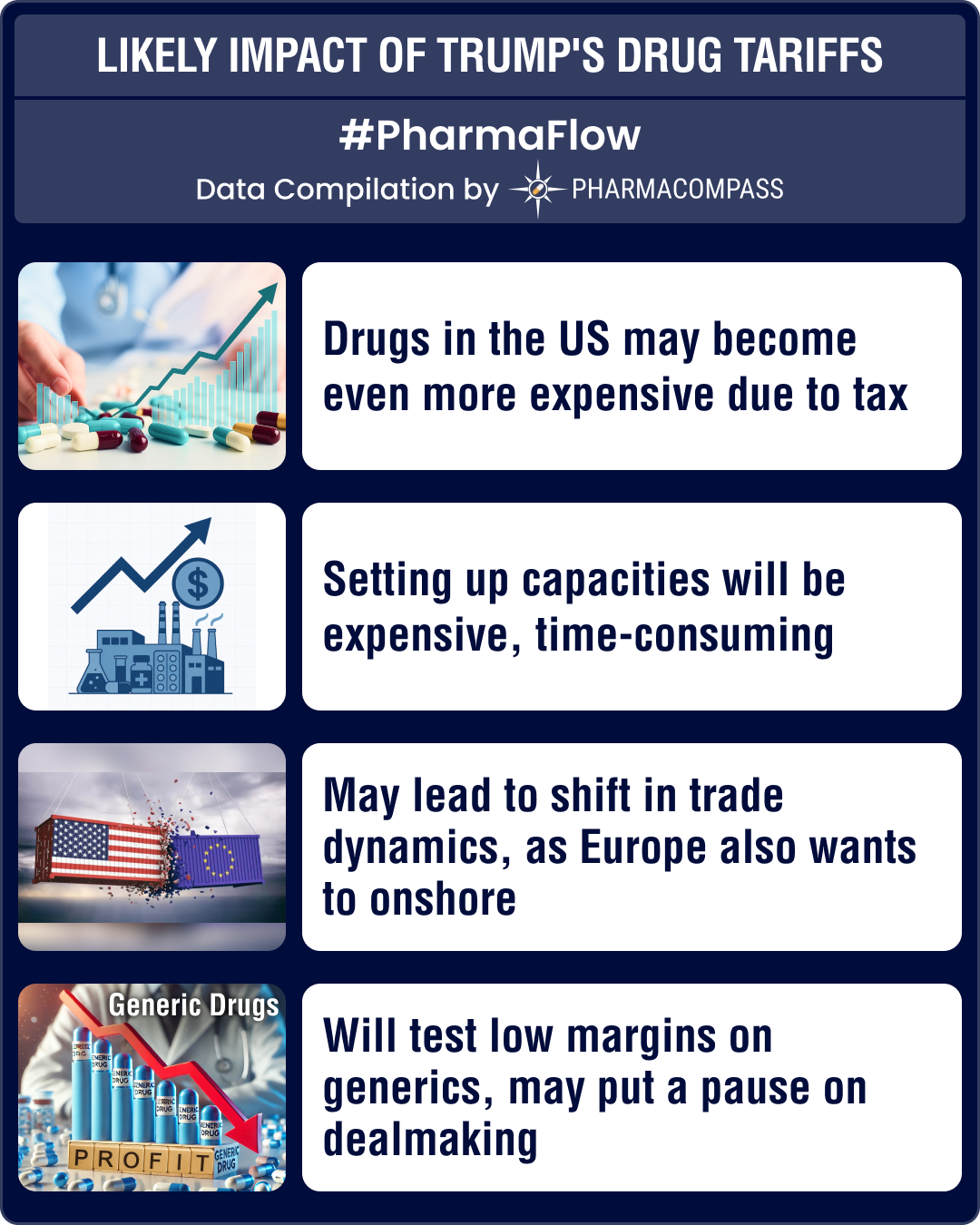
This week, Phispers brings to you the latest news from the world of pharma where Merck was found lying under oath, Mylan’s “exceptionally large” drug price hikes reignited the price-gouging debate and data integrity issues surfaced in China. And, a lot more.
Dr. Reddy’s acquires products from Teva; but faces penalties in the US
This has been a mixed week for Dr. Reddy’s Laboratories. The company has signed a deal with Israeli drug maker Teva to acquire a portfolio of eight abbreviated new drug applications (ANDAs) in the US for US $ 350 million. In April 2015, Teva had entered into a deal with Allergan to buy its generics products for US $ 40.5 billion, soon after it failed in its bid to buy Mylan.
On the flip side, the US Consumer Product Safety Commission (CPSC) has sought civil penalties against Dr. Reddy’s for failing to report problems with packaging of several medicines. In a 4-1 vote held two weeks ago, CPSC said Dr. Reddy’s knowingly violated federal law as issues with child-resistant blister packs for five prescription drugs were not reported within the mandated 24 hours. The violations had occurred between 2002 and 2011.
After antibiotics in Chinese rivers, it’s metformin in American waters
In June last year, we reported on how antibiotics were found in the rivers of China. This week, a new study has found traces of the widely-used diabetes drug – metformin – and other medicines in dozens of streams throughout southeastern United States. The survey was done on 59 streams and it found an average of six different drugs.
The findings suggest the cause of contamination was unrelated to discharges from wastewater treatment facilities. Metformin appeared in 89 percent of the samples and 97 percent of the sample sites.
Researchers also found traces of tramadol (opioid); carbamazepine (anti-seizure drug) and Allegra (antihistamine). At some of the sample sites, the concentrations of these medicines are expected to affect aquatic life.
There was also some good news about metformin this week. Research has suggested that metformin may exert a long-term protective effect against neurodegenerative diseases, including Alzheimer's and Parkinson's.
Court overturns US $ 200 million jury award; says Merck ‘lied under oath’
A federal judge in San Jose found Merck lied to a business partner and to the court. As a result, the judge threw out a patent infringement judgment Merck had won against Gilead Sciences. He also overturned a US $ 200-million jury award. This judgement is considered a landmark one, considering it involves Gilead’s blockbuster drug Sovaldi, a treatment for the hepatitis C virus, and Merck – the world’s fourth-largest drug company. “Merck's misconduct includes...misusing Pharmasset's confidential information..., and lying under oath at deposition and trial,” the federal judge, Beth Labson Freeman, said.
This news comes at a time when a review by the US Food and Drug Administration (FDA) staffers questioned whether an experimental Merck drug is effective in treating Clostridium difficile, or C. difficile, the most common cause of infectious diarrhea in hospitals and nursing homes.
Mylan’s ‘exceptionally large’ drug price rise brings pricing debate back in focus
Price gouging has been plaguing the global pharma industry for quite some time now. During the week, there was news about Mylan and Pfizer increasing prices. Over the last six months, Mylan has raised prices by more than 20 percent on 24 products.
Meanwhile, Pfizer was in news for increasing the list prices of its medicines in the US by an average of 8.8 percent. This is the second time this year that Pfizer has substantially boosted prices for its prescription drugs. On January 1, Pfizer had raised prices by an average of 10.4 percent. Mylan boosted prices by more that 100 percent on seven other products. Wells Fargo analyst David Maris termed the price hikes as “exceptionally large.”
In Europe, the high price of drugs is straining its cash-strapped health systems and depriving patients of the latest products. Ergo, the European pharmaceutical industry is considering a radical shift in the way it prices drugs so that companies are rewarded for the clinical benefit of treatments rather than the number of pills sold. An internal report prepared by the European Federation of Pharmaceutical Industries and Association has called for the removal of external reference pricing and placing curbs on parallel imports.
Interpol’s Operation Pangea IX seizes US $ 53 million worth of illicit medicines
Interpol seized potentially life-threating drugs and goods, including fake cancer medication, substandard HIV and diabetes testing kits, counterfeit dental equipment and illicit surgical equipment, through its Operation Pangea IX.
The operation involved targeting illicit online sale of medicines and medical devices. It involved 193 police, customs and health regulatory authorities from 103 countries. Operation Pangea resulted in 393 arrests worldwide and the seizure of more than US $ 53 million worth of potentially dangerous medicines.
The operation was supported by private partners from the Internet and payment industries and saw the suspension of 4,932 websites selling illicit pharmaceuticals.
India’s pharma industry growth dips to two-year low
The impact of Indian health ministry’s gazette notification banning the immediate manufacture, sale and distribution of 344 fixed dose combination (FDC) drugs has begun to reflect in growth numbers.
The Indian pharmaceuticals market’s growth this May was the lowest in two years, impacted by a drop in sales of FDC drugs, fresh price cuts and a lower than expected uptake, according to pharmaceutical market research company AIOCD PharmaTrack.
For May, the pharmaceuticals market grew by 7.7 percent compared to 11.6 percent during the same month last year, reaching sales of Rs 994.76 billion (US $ 14.8 billion) over a 12-month period. India’s FDC market dropped 14.6 percent and is now valued at Rs 1.96 billion (US $ 29.1 million).
Valeant may sell stake in Egypt’s largest drug company Amoun
Valeant Pharmaceuticals International plans to step up its debt-reduction plans and is considering the sale of Egyptian drug maker Amoun Pharmaceutical. According to a report, Amoun may attract drug companies with an interest in expanding in emerging markets. Valeant is reportedly working with Goldman Sachs Group on the sale.
Last year, Valeant had acquired Amoun’s holding company – Mercury Holdings – for around US $ 800 million, along with some contingent payments. Valeant’s intentions at the time were to use Amoun as a platform to further expand in the Middle East and Africa.
GMP problems roundup: Fresh cases emerge in China, India
- Beijing
Taiyang Pharmaceutical Industry, a Chinese manufacturer of diphenyhydramine
hydrochloride, a commonly used antihistamine, was placed on the FDA import alert
list in April 2016. Last week, Beijing Taiyang was also placed on Health Canada’s Inspection Tracker List as the regulatory agency evaluated the risk the company’s products posed to patients. The primary reason given for the action was data integrity concerns.
- Akums Drugs & Pharmaceutical Limited is a major Indian contract manufacturer with nine facilities that mostly supply to the domestic market. Akums’ international expansion plans suffered a setback as its facility in Haridwar (India) failed its first EDQM (European Directorate for the Quality of Medicines & HealthCare) inspection.
The critical deficiency observed by the inspectors was the “lack of sterility assurance as there was insufficient evidence during validation to confirm that all ampoules in the load met the sterilizing conditions”. There were also deficiencies observed across all aspects of the quality management system.
Akums’ failure is a setback for the Netherlands-based Nordic Pharma Limited for whom Akums was manufacturing progesterone injection 50mg/mL ampoules (Gestone). The inspection failure will result in the recall of four batches from the UK and Ireland and will most likely have Nordic Pharma retain their existing contract manufacturer, Hikma Italia SPA.
The PharmaCompass Newsletter – Sign Up, Stay Ahead
Feedback, help us to improve. Click here
Image Credit : 8/365²: Adicto! by Andrés Nieto Porras is licensed under CC BY 2.0
“ The article is based on the information available in public and which the author believes to be true. The author is not disseminating any information, which the author believes or knows, is confidential or in conflict with the privacy of any person. The views expressed or information supplied through this article is mere opinion and observation of the author. The author does not intend to defame, insult or, cause loss or damage to anyone, in any manner, through this article.”






